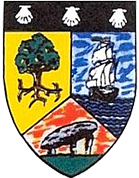Getting Started
Regardless of your motive to start researching your Family History, you will probably find that the best place to start is by looking at the lives of those who came before you – your ancestors. The following are some tips to help get you on your way.
1. Take a trip to the attic…
Take a trip to the attic. Locate letters from your ancestors, family photographs and religious books – these may contain important names and dates of birth, marriage and death. Spend an afternoon looking through old photo albums, paying special attention to inscriptions and dates on photos.
2. Get Talking…
The single most useful (and enjoyable) source of information on your ancestors is your family itself. Contact your relatives. They can provide a wealth of information including the name of your oldest living relative. Interview that person and make sure to record your conversation. Ask background questions such as:
- Where are our relatives buried?
- Do you know any dates of birth, death and marriage of relatives?
- Tell me some old family stories…
- Do you know any living relatives I don’t know?
If so, interview these people and follow this same process – be sure to document all conversations and keep notes in a dedicated binder with the other materials you’ve collected along the way.
3. Work from the present to the past…
Compile all the information you have available on the history of your family from your own documentary records and oral information. It is important that your items of information be as specific as possible. Initially while gathering information, you may experience difficulties, but try to be patient and you will find it very rewarding.
4. Establish the county of origin…
It is vital to try and establish which county in Ireland your ancestors came from before initiating contact with genealogy centres in Ireland. Commence with your Irish born emigrant ancestor and try to establish this emigrant’s father’s name and mother’s pre-marriage name. In some countries, including the USA this information is contained on death records. Some of these details are also contained in marriage record
5. Surnames
Spellings of surnames in records will vary greatly and no particular significance can be attached to an individual spelling as found in any particular record.
6. Age
Details of age in marriage, census or other records should be treated as approximate. Many people did not know their age, and had no reason to be concerned about what age they were. Age was easily forgotten.
